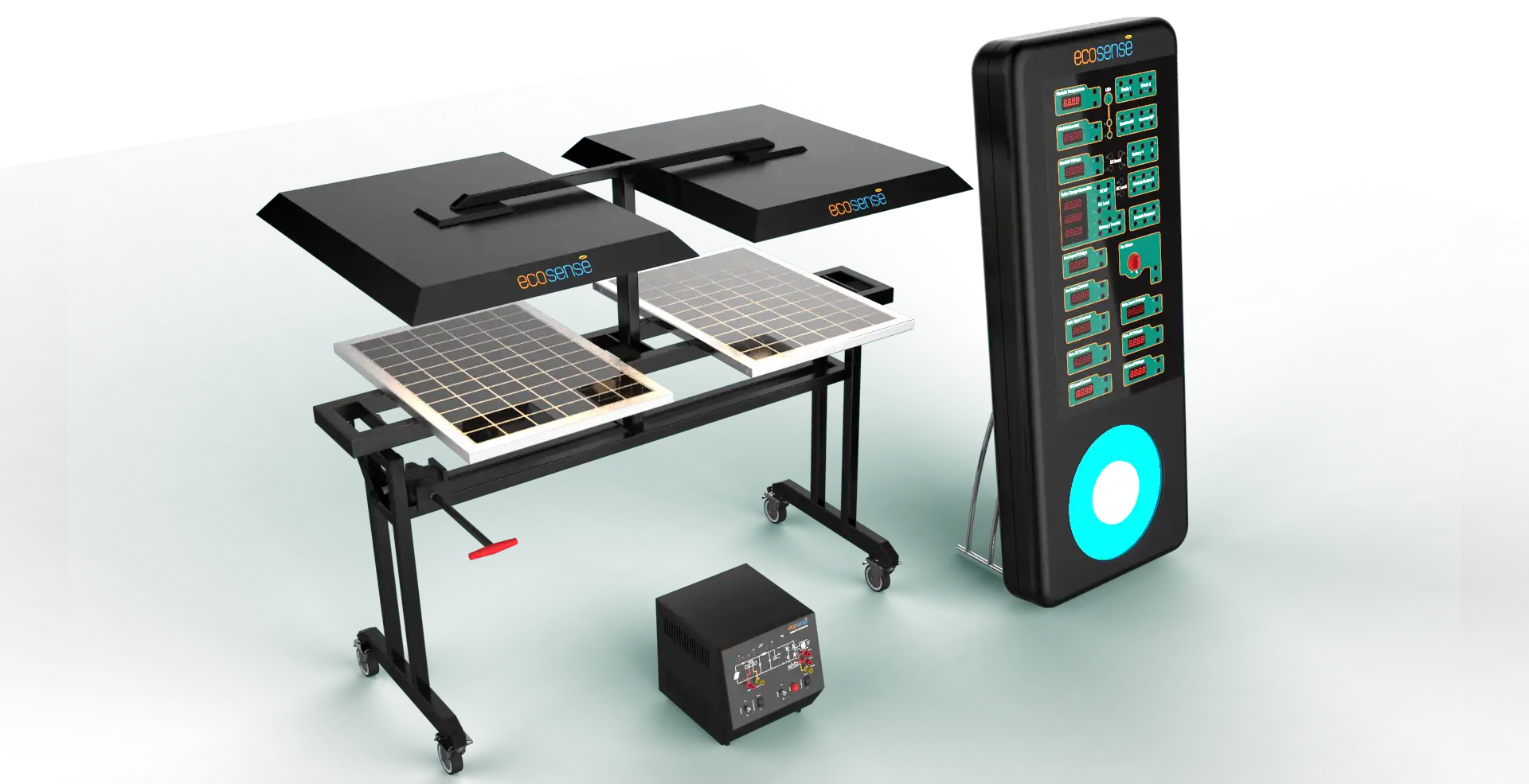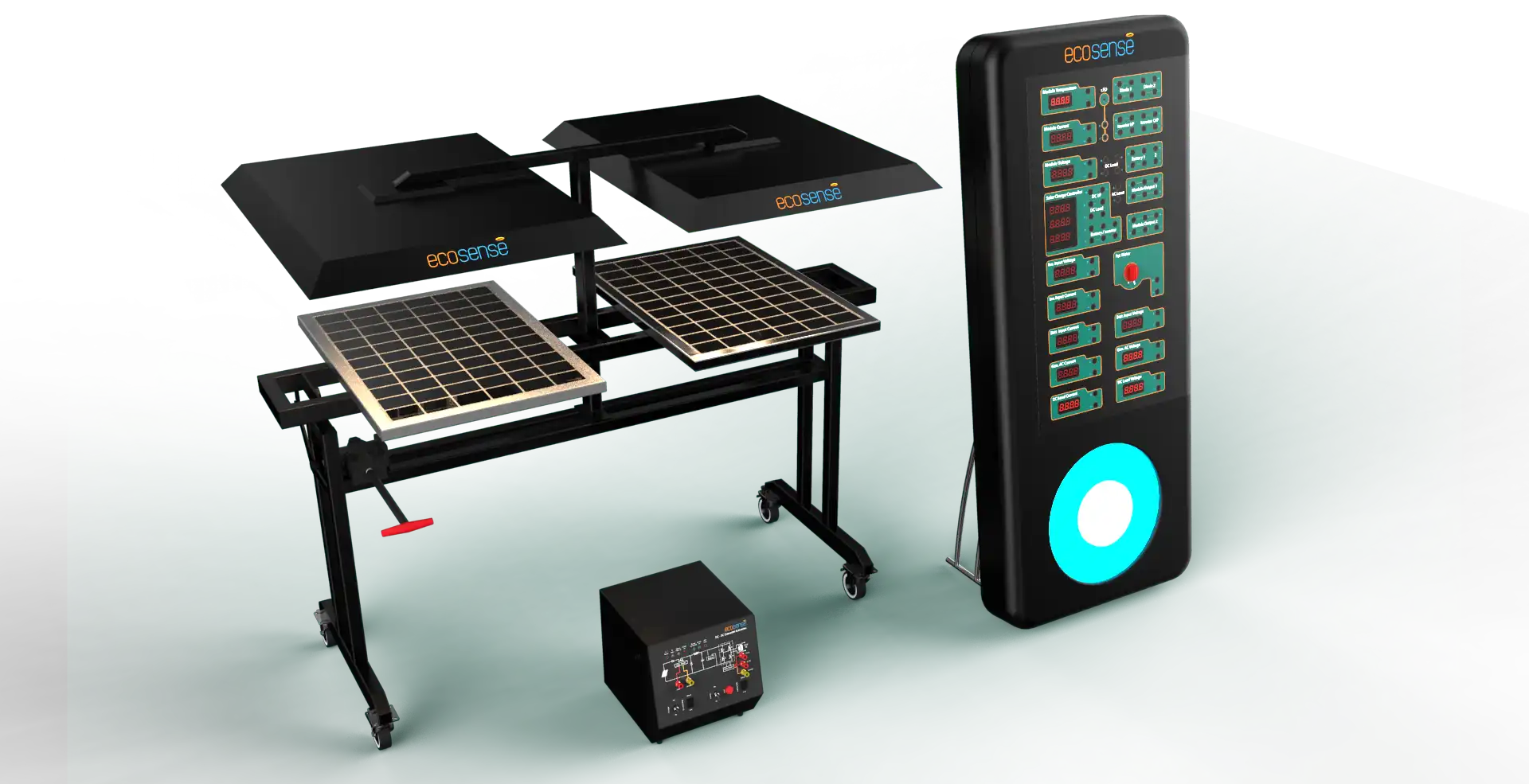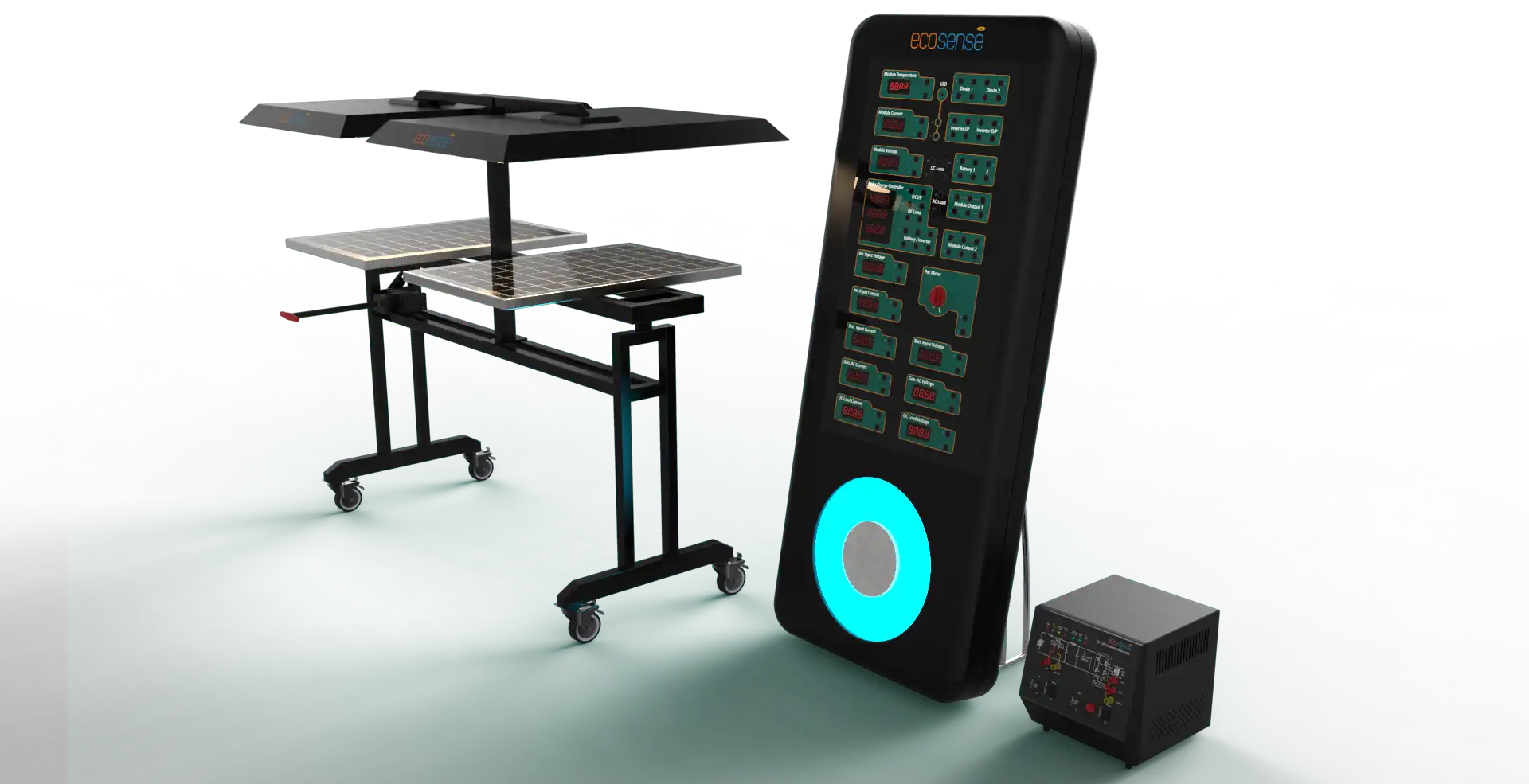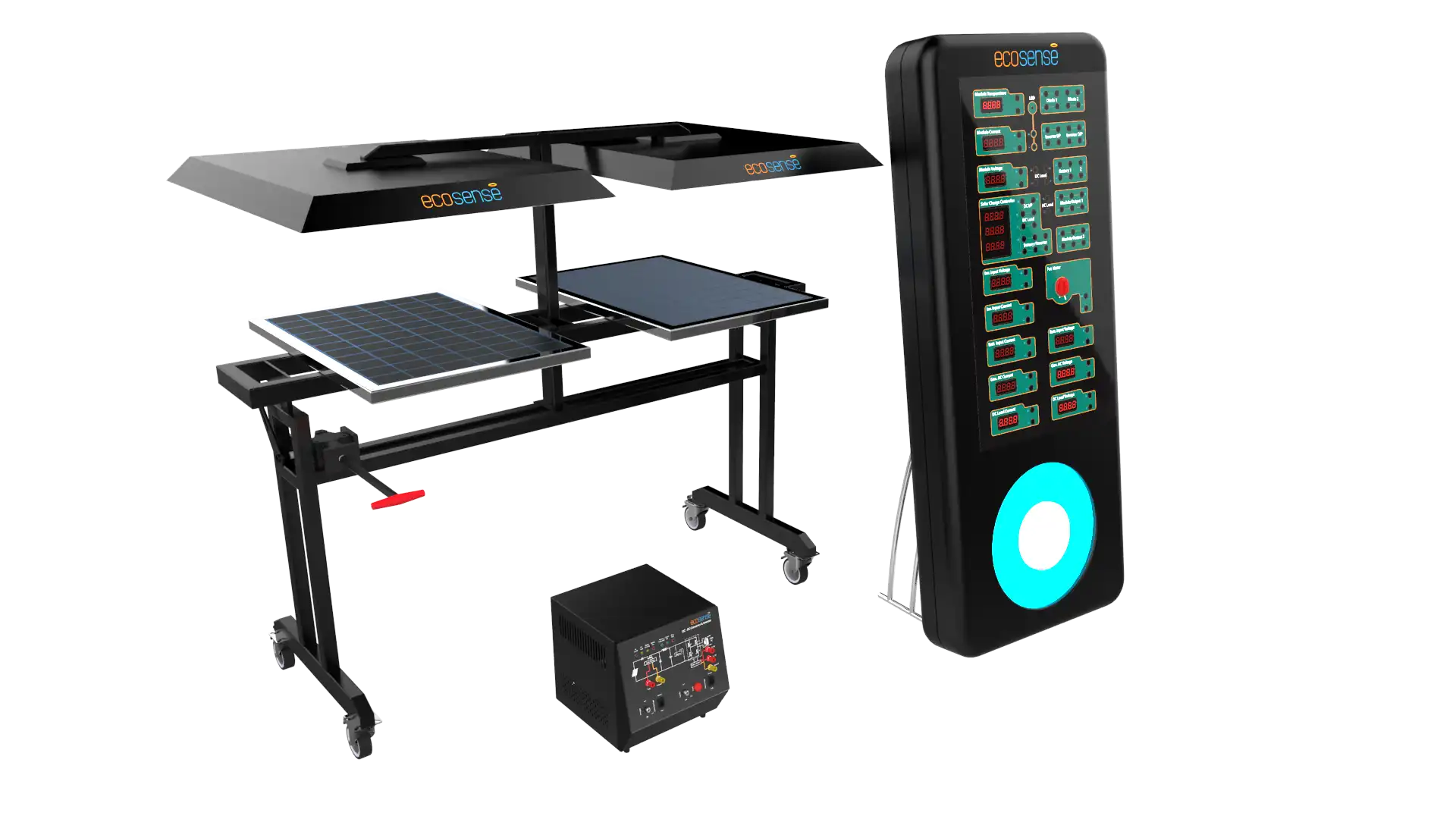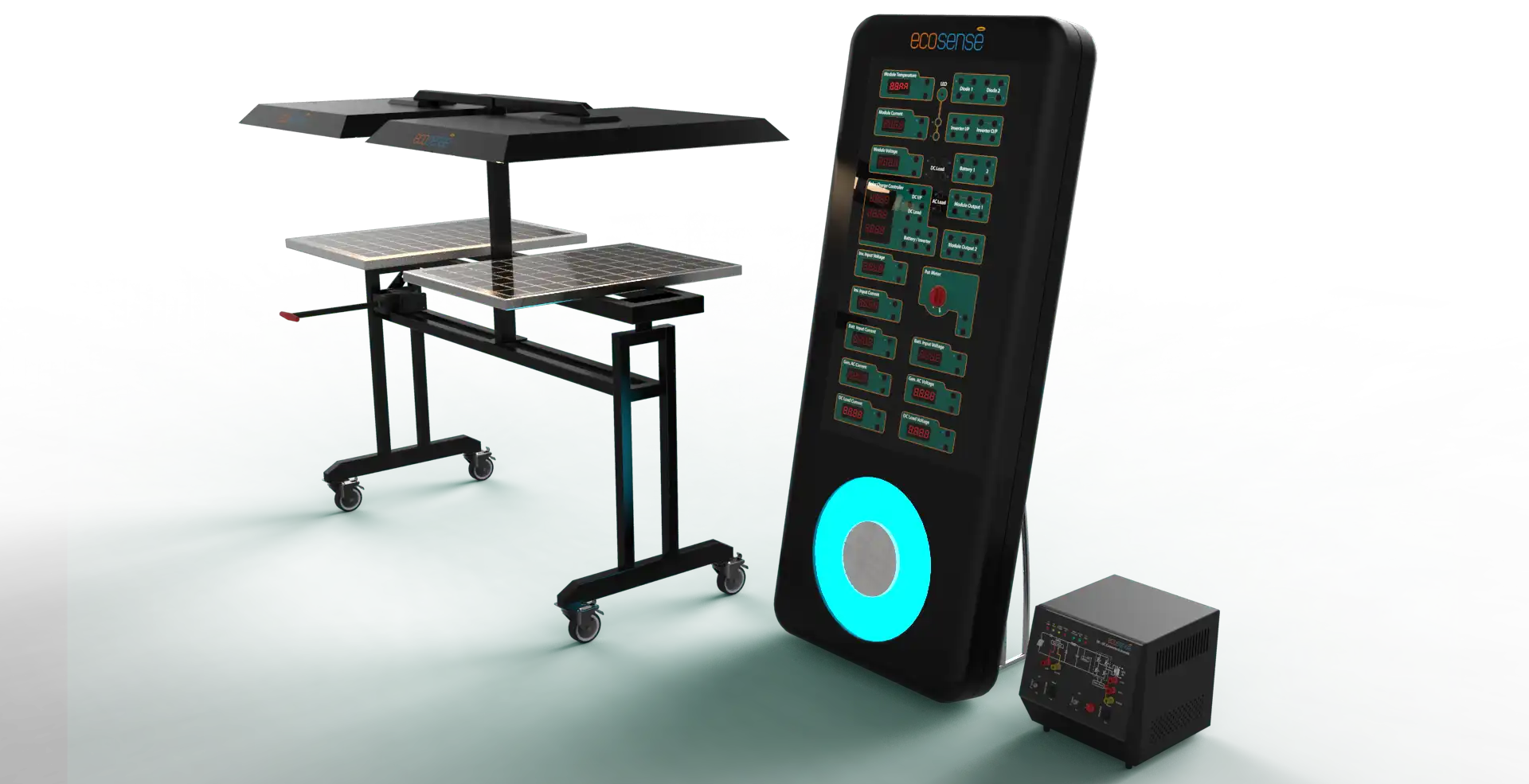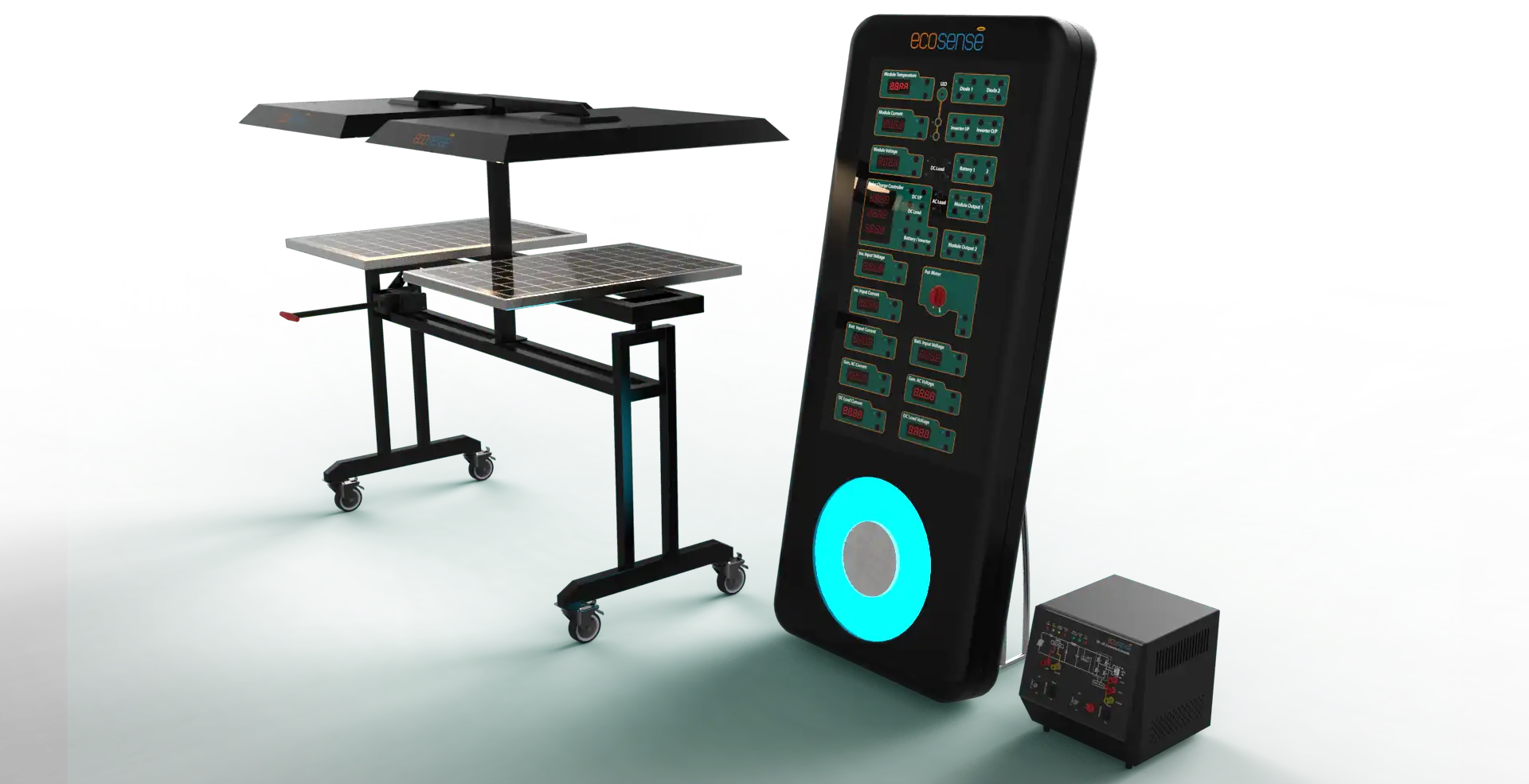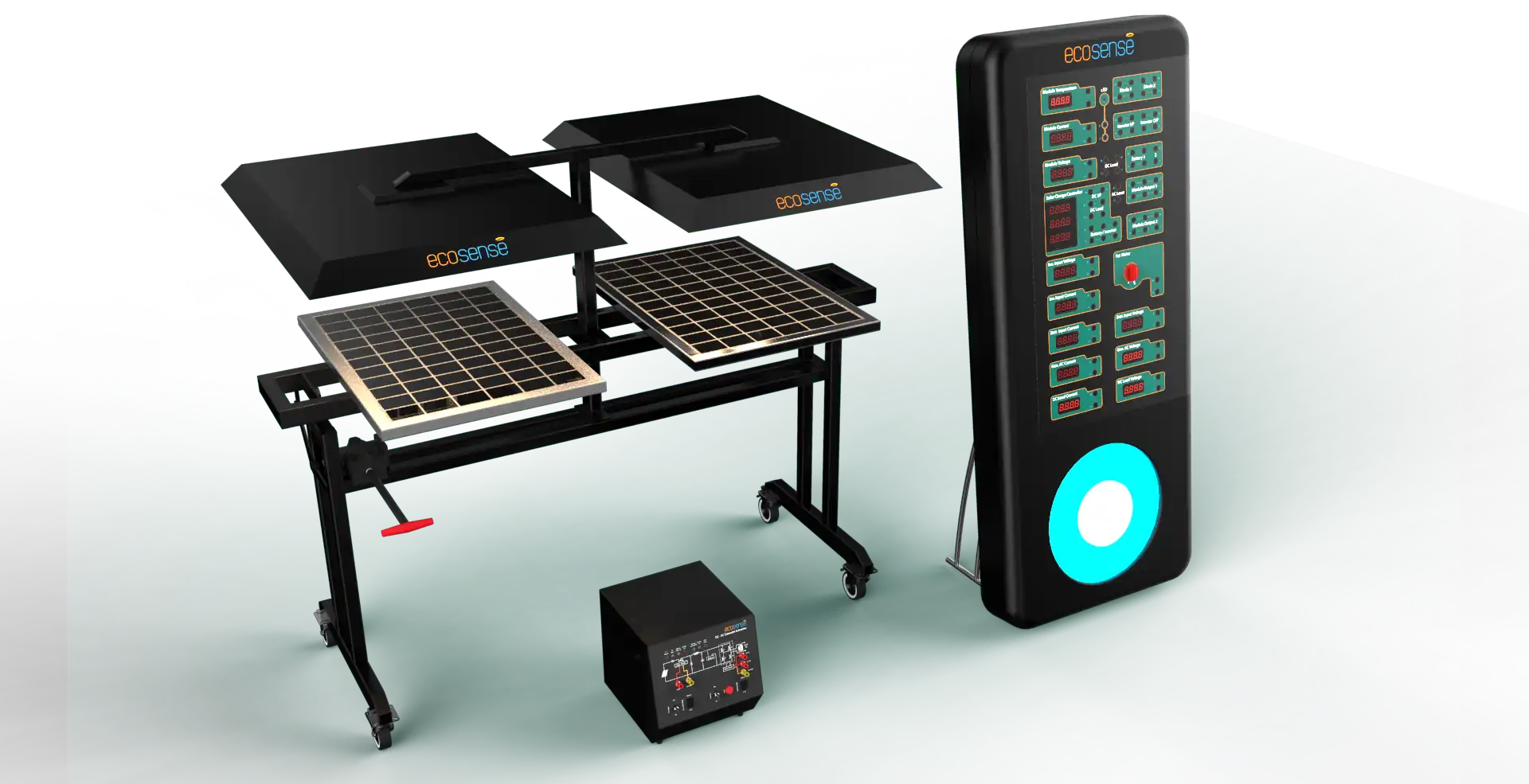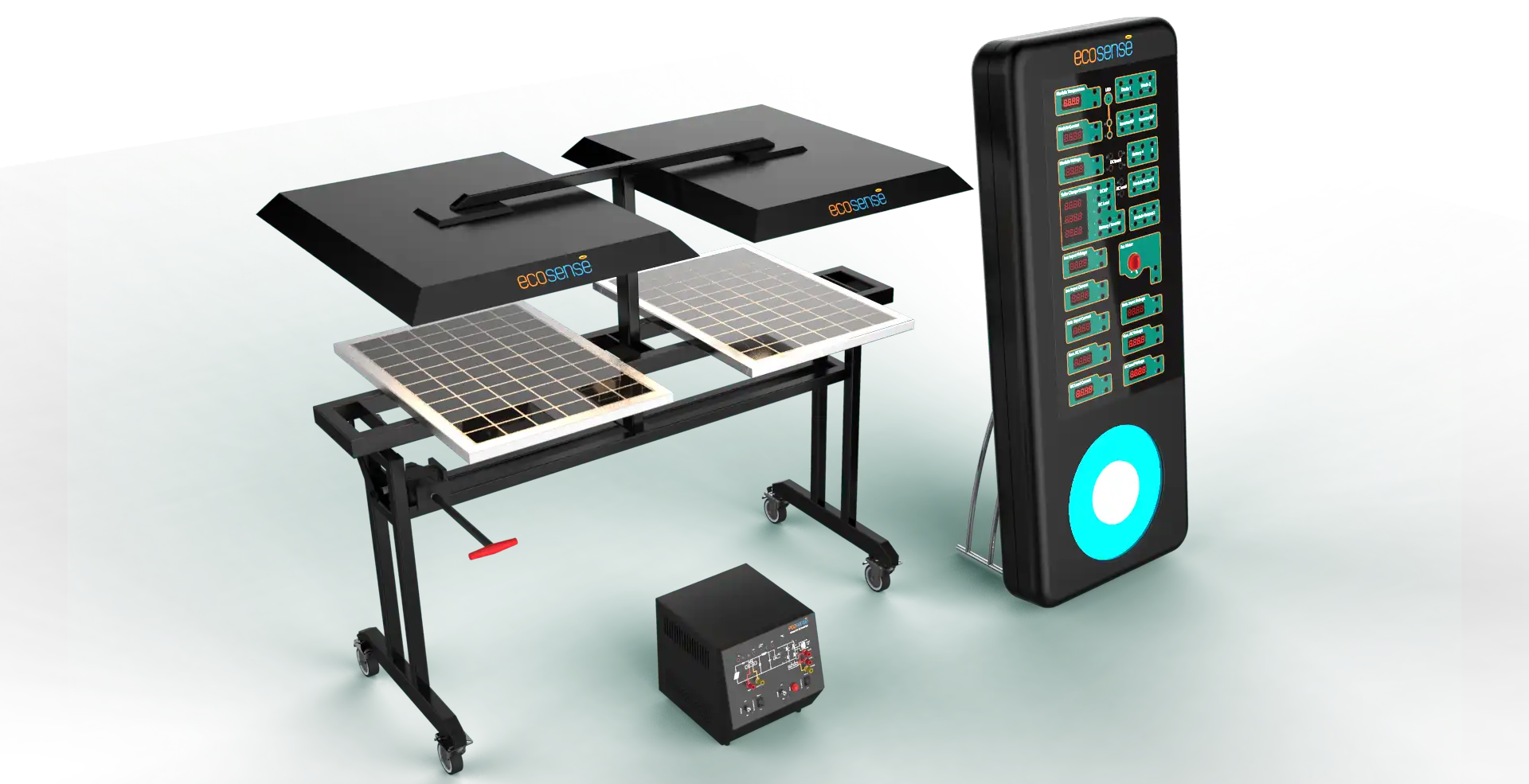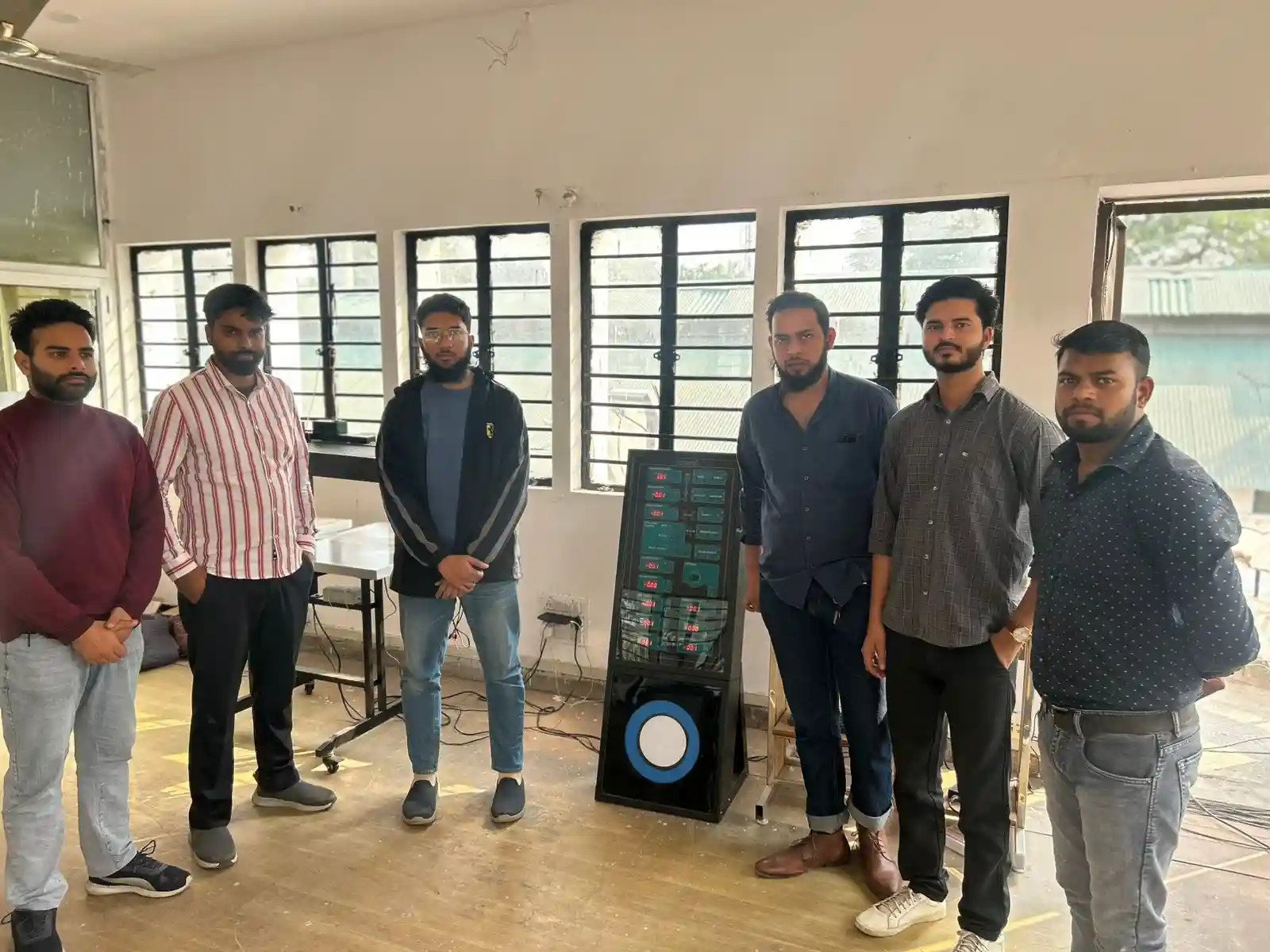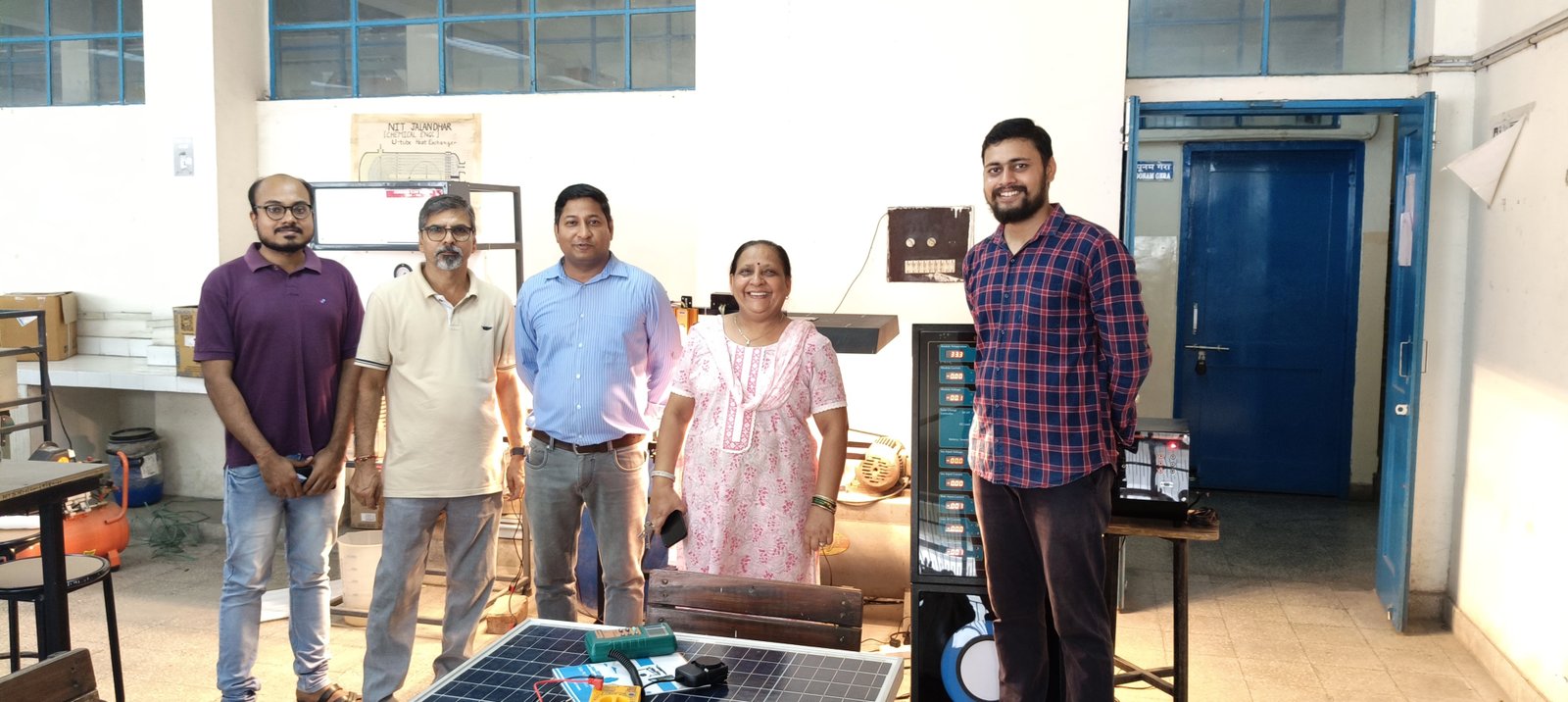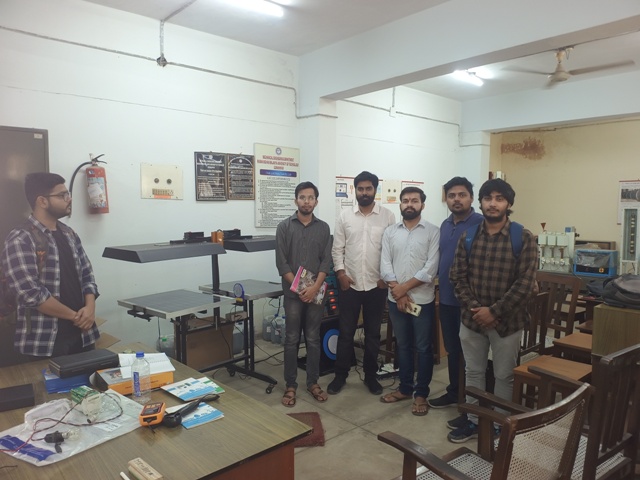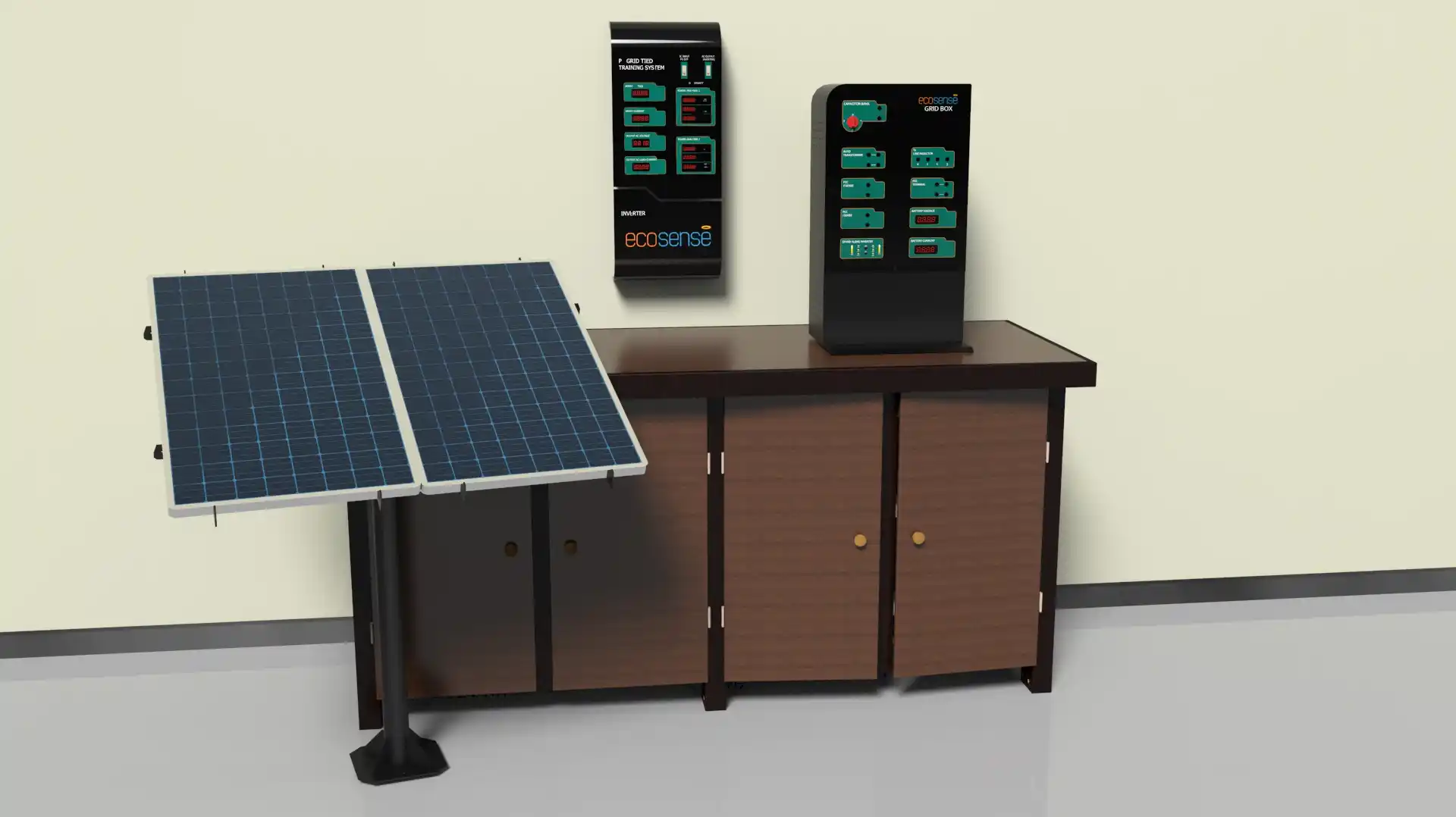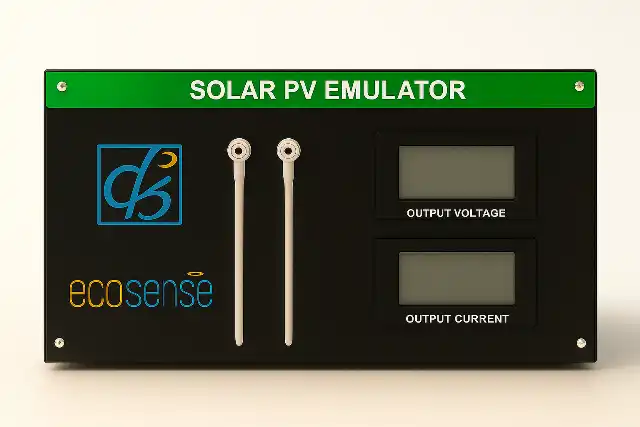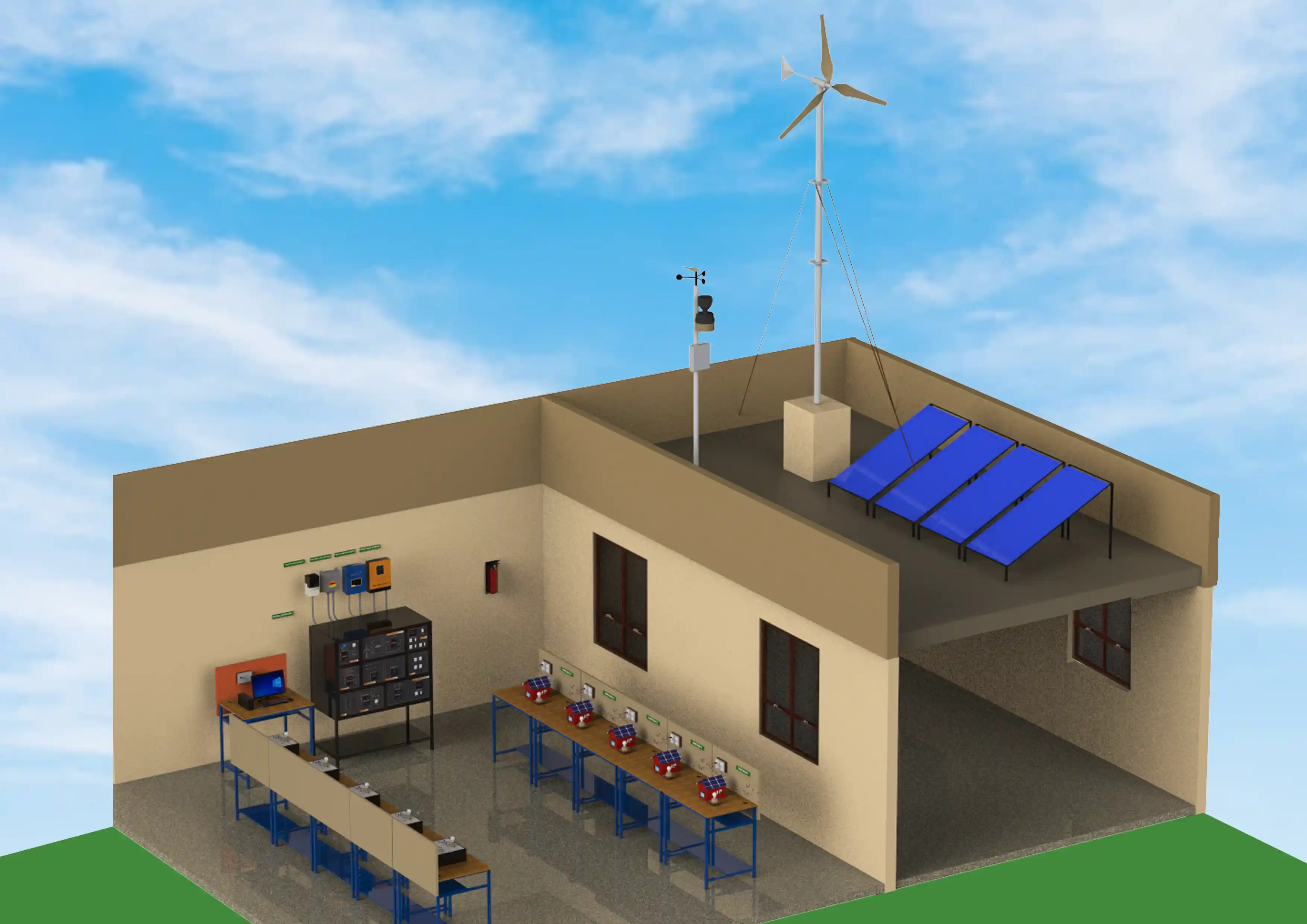The Solar PV Training & Research Kit is a modular and scalable laboratory platform divided into three interconnected units. The architecture enables a structured learning path, progressing from fundamental PV concepts to advanced research experimentation.
1. Power Generating Unit: This unit enables indoor, weather-independent testing using halogen lamps as artificial sunlight. Solar PV panels are mounted on a rigid frame with a geared tilt mechanism to study angle-of-incidence effects. A dimmer control allows precise irradiance variation to analyse PV performance under changing solar conditions.
2. Power Conditioning Unit: Serving as the hands-on experimental core, this unit includes diodes, DC and AC loads, a standalone inverter, and a charge controller. Integrated voltmeters, ammeters, and temperature sensors provide real-time measurements. All components are internally unconnected, requiring manual wiring for each experiment and reinforcing practical system understanding.
3. Research Unit: Designed for advanced experimentation, the research unit integrates data logging and plotting with a DC–DC converter. It supports manual mode for external gate signal injection and MPPT development, and automatic mode for complete standalone PV system operation.
Experiment Progression: Experiments progress from PV characterisation (I–V and P–V curves, irradiance and temperature effects), to standalone system studies (charge control, inverter operation, load behaviour), and finally to research-level experiments involving MPPT development, converter control, and performance optimisation.

